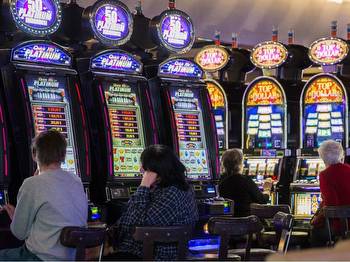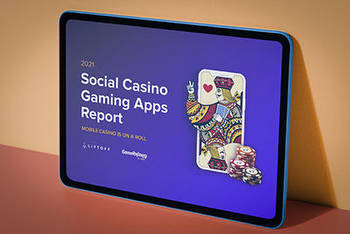Exploring the demographics of online casino users in the US in comparison to other countries
The number of US online casino users is on the rise. Although a few elements have contributed to this surge, the most significant are the changes in legislation. Dealing with such significant changes on a state-wide basis, which have brought millions of new users flooding into the newly regulated gambling industry in the US, has meant that those who crunch the numbers and chart demographics have barely had time to catch their breath and explore the data.
I’d say rummaging through vast piles of information and statistics can sometimes be overkill – you can often get a good idea of broad gambling data by drilling into a few key areas, which I will be doing today. Throughout my time in the online gambling industry, the most noticeable shift has been over the last five years, when the online gambling sector operating in a dozen or so states tripled that number in a few short years.
Casino gaming experts earn their stripes by separating opinion from fact. In this sense, they’re not too different from experts in other areas – if you can’t back up your opinions or your point with solid, documentable evidence, you’re sweeping leaves on a windy day.
While soundbites might make good headlines or get you a few likes on X, in the real world, people who have dealt with online casino user data since the early part of this century, like I have, need a bit more to go off rather than just hyperbole and hearsay. Adding weight and sources to an opinion can help build an idea of how the industry is shaping up and can also educate those looking for more information about how the sector works.
Gambling operators aren’t soft. They know that the potential profit margins in US gambling are enormous, so many have spent millions of dollars lobbying influential names and legislators to view the industry more favorably. In 2018, a meant that states could permit sports betting companies to operate within state lines, ending Nevada’s monopoly on the US market.
I know sports betting and online casino gaming are two different worlds, but it spoke to the broader acceptance and tolerance of digital gambling – only now, there was documented legal precedent. It meant that the floodgates opened, providing a watershed moment for a number of states to follow suit, and they wasted little time in doing so.
We now have a much greater data pool from which to source demographic information, especially how the US shapes up against some of the other prominent countries that had a favorable approach to online casino gaming.
Instead of having a small sample of gamblers in Nevada, millions of people were offered platforms and facilities to place a bet online, which resulted in some pretty intriguing results. It gave people like me, a sucker for a good bit of number crunching, much greater insight into the demographics of those betting in the US and how the legislation reshaped the statistics.
I won’t travel around the map and pick out 60 countries to compare the US to. I’m going to focus on the remaining top four. Aside from the US, the other countries that make up the top five are the UK, Australia, Germany and Canada – in that order.
Less than a decade ago, the US was running third behind the UK and Australia – but the legislative changes we mentioned earlier ensured that this gave the US market the kick it needed. It is now, by quite some margin, the most prominent individual online gambling market in the world, inclusive of online casino gaming and sports betting.
According to recent studies, the global online gambling market will grow from $580 billion in 2024 to . The US will account for around $136 billion, while the UK will contribute less than half of that, with the Australian market trailing in third place. While it’s important to note that these are just industry projections, from personal experience, I have seen statisticians get this wrong. Based on the current demographic breakdown and the methods people use to bet, however, it sounds right.
The American Gaming Association, which is one of the leading governing bodies in US gambling, has released several intriguing studies to coincide with many states deciding to regulate gambling and allow their citizens to participate in casino gaming.
On average, three in five Americans have placed a bet over the last 12 months, and many of those casual bettors say they would usually place a bet on the Super Bowl rather than play a casino game.
Younger generations in the US are more likely to play casino games than older generations. Studies have also shown that Gen Z is more likely to attend land-based casinos than older generations, which is one of the more surprising bits of data emerging from the demographics of US casino users.
Statistically, baby boomers and Gen X are more likely to limit their gambling, which is something we find happening over time anyway. As a general rule of thumb, older generations are thriftier with their cash and have developed methods to conserve their wealth.
Millennials and Gen Z are more likely to spend their money at online casinos, often because they don’t have the same sort of overheads as older generations. They’re also more equipped to navigate the online casino landscape, predominantly via smartphones and tablets.
While the USA is the market leader in terms of online casino gambling volume, Gen Z and Millennials, particularly men, are the most likely to gamble in other big gambling nations, most notably the UK and Australia.
Yes, and this stretches beyond the US, too. If I apply a general rule of thumb, men are around 2.5 times more likely to gamble than women. This matches up with the information I have studied on the subject over the years and is consistent with several studies and surveys that have emerged from the US and further afield in recent years.
The more interesting demographic breakdown is the online casino games we choose to play.
Men are considered more likely to play roulette or poker games, while women tend to be inclined to seek out digital slot gaming and niche casino gaming, such as bingo games. Again, studies suggest that this is a demographic breakdown that is widespread.
Canada is experiencing changes similar to those in US casino gaming at the moment, with many provincial areas rolling out new legislative plans. However, there are small changes to consider, such as the legal age for casino gaming in Ontario being set at 19 rather than 18. As in most other parts of North America, early suggestions and data show that demographic data doesn’t stray too far from what we’ve seen in both the UK and Australia.
Men are more than twice as likely to gamble than women in the US, UK and Australia, and they’re also at much higher risk of developing a problem with their gambling. Studies show that men are six to seven times more likely to develop an issue with gambling than women are. While there are many complex social factors to consider as part of this data, it’s not an anomaly specific to the US – it’s found right across the digital gambling world.
If you believe you’re developing an issue, multiple problem gambling services can help you online. It can manifest in many ways, but if it’s impacting your close relationships, your friends or family are telling you they are worried, or you are spending too much time and money gambling, you need to look inward and establish there’s an issue that needs addressing and seek out the help of a professional.
My biggest takeaway from several different surveys and data collated over the last few years is the similarities between US gamblers and the rest of the world. The main statistical anomalies in gambling tend to be in sports betting, and even then, that’s simply down to the sporting culture.
For instance, Canadian gamblers are more likely to bet on hockey than those in the UK, but in terms of a breakdown based on gender, age etc, right across the board, Gen Z and Millennials are more likely to gamble in the US, as well as in Australia, the UK, Germany and Canada.
Women are more likely than men to play niche casino games like bingo and are more likely to play online than in a land-based casino. Again, this is the same across the West and probably attests more to online gambling being a global market than local, domestic pockets of gamers. That’s the opinion I have formed, anyway.
Kevin Flynn is the US Market Expert with CasinoTopsOnline. With a background in the Financial and Business sectors, his forte is analysing and comparing markets. Kevin has gained an industry-leading level of financial knowledge surrounding the iGaming industry, and he brings all the insider tips US players need to make the right choices when starting their iGaming experience.


































